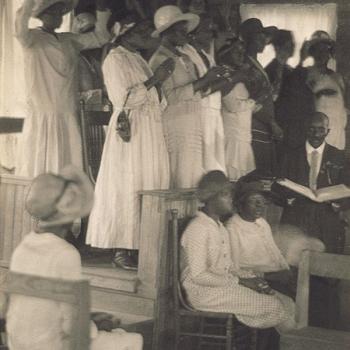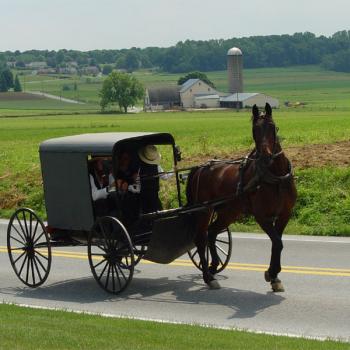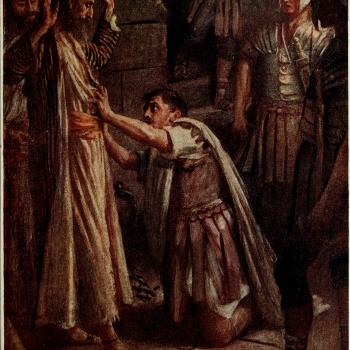H. L. Mencken thought that English Protestants used a different vocabulary from their fellow communicants in the United States (from The American Language):
the English have an ecclesiastical vocabulary with which we are almost unacquainted, and it is in daily use, for the church bulks large in public affairs over there. Such terms as vicar, canon, verger, prebendary, primate, curate, nonconformist, dissenter, convocation, minster, chapter, crypt, living, presentation, glebe, benefice, locum tenens, suffragan, almoner, dean and pluralist are to be met with in the English newspapers constantly, but on this side of the water they are seldom encountered. Nor do we hear much of matins, lauds, lay-readers, ritualism and the liturgy. The English use of holy orders is also strange to us. They do not say that a young man is studying for the ministry, but that he is reading for holy orders. They do not say that he is ordained, but that he takes orders. Save he be in the United Free Church of Scotland, he is never a minister, though the term appears in the Book of Common Prayer; save he be a nonconformist, he is never a pastor; a clergyman of the Establishment is always either a rector, a vicar or a curate, and colloquially a parson.
In American chapel simply means a small church, usually the branch of some larger one; in English it has acquired the special sense of a place of worship unconnected with the Establishment. Though three-fourths of the people of Ireland are Catholics (in Munster and Connaught, more than nine-tenths), and the Protestant Church of Ireland has been disestablished since 1871, a Catholic place of worship in that country is still a chapel and not a church. So is a Methodist wailing-place in England, however large it may be, though now and then tabernacle is substituted. Chapel, of course, is also used to designate a small church of the Establishment, as St. George’s Chapel, Windsor. A Methodist, in Great Britain, is not ordinarily a Methodist, but a Wesleyan. Contrariwise, what the English call simply a churchman is an Episcopalian in the United States, what they call the Church (always capitalized!) is the Protestant Episcopal Church, what they call a Roman Catholic is simply a Catholic, and what they call a Jew is usually softened (if he happens to be an advertiser) to a Hebrew.
If Anglicans in America talk like other American Protestants, is it because so many come to Anglicanism from other denominations? Here’s one test:
My husband and I were part of (and on staff at) several Presbyterian churches (PCA). I was drawn to the beauty of Anglicanism in seminary and, through our theology and Church History courses, I was becoming more sacramental in my theology, but we loved (and still love) our church in the PCA. It wasn’t until we moved cities and, for a variety of reasons, could not find a PCA church near us, that we decided to attend a little evangelical Episcopal church. It was a gap year between seminary and my husband’s PhD program, so we didn’t think “we will now be Anglican forever” when we started attending. We just needed a church for the year. But for the first three months we went to this Episcopal church, I’d cry every week. The mystery, beauty, and embodiment of the liturgy and weekly eucharist was so very healing to me. After a few months in this church, we knew we were ruined for any other tradition. We fell in love with the Anglican way of worship (chiefly, the liturgy and the prayer book) and couldn’t go anywhere else….
pray for the Anglican Church in North America. It is such a big tent. We have lower-church evangelical types and high-church Anglo-Catholics; we have those against women’s ordination and those all for it; we have those on the political left and those on the right. I love that we are trying to hold together and display a Gospel-rooted unity, but it is a hard road to walk.












